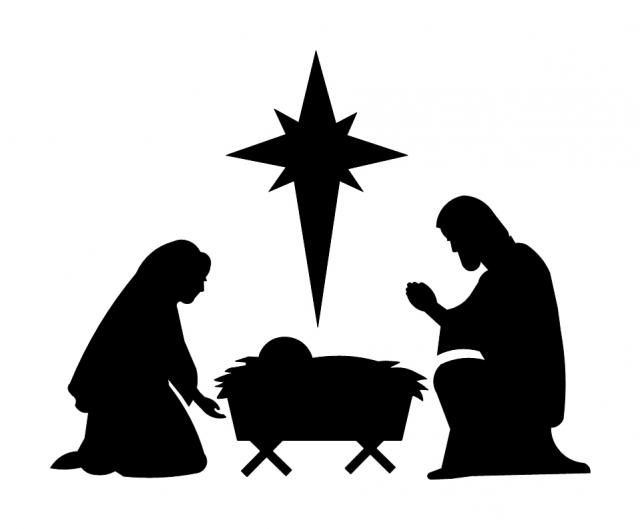It’s early December, and around this time of year, I like to publish a thought about Christmas and Jesus’ birthday because it’s often a source of disagreement.
No doubt you’ve passed a nativity scene or two in the week since Thanksgiving. The December month is one that is very much aligned with people’s reflections on the birth of Jesus. This gives some New Testament Christians pause: Are there examples of brethren celebrating Jesus’ birth in the early days of Christianity? No. Does that mean such celebrations are sinful? Let’s talk about it.
This is not the most-debated subject in our brotherhood, but it does come up quite a bit, especially (obviously) this time of year. Let me offer just a trio of basic thoughts, each derived, not from my opinion, but a reading of Scripture…
1. JESUS WAS BORN IN EITHER MARCH OR SEPTEMBER
This may or may not come as a surprise, but it’s absolutely Biblically confirmable. First of all, there is zero chance (0.0%) that Jesus was born in December. Not the first, not the twenty-fifth, not anytime in between. Nada. Bupkis. There’s no scriptural evidence for it. There’s no contextual evidence for it. In fact there’s contextual evidence against it: Shepherds didn’t keep watch over their flock at night in the middle of a field…in the middle of winter! More importantly, there is direct Scriptural evidence to know when Jesus was born, and you only need to know THREE key Bible facts…
A) John the Baptist was born six months before Jesus (Luke 1:35-36).
2) John the Baptist was conceived while his father, the priest Zacharias was serving in the temple (priests took turns regarding when they served; these turns were called “courses” which organized the priests into orders of service, assigning them to work twice a year, serving in two week stretches, in six-month rotations); Zacharias served under the Course of Abijah (Luke 1:5-8).
D) The Course of Abijah was the eighth division (1 Chronicles 24:1-10), meaning Zacharias served sixteen weeks (8 divisions x 2 weeks per turn) after the beginning of the Jewish year (which was around March), and then he served for another two weeks, six months later (which was around September): Ergo, Elizabeth (John’s mother) conceived sometime either in June or December, and gave birth to John in March or September…and since Mary was conceived with Jesus six months into Elizabeth’s pregnancy, that would mean Mary conceived Jesus in either June or December, and gave birth nine months later…in either March or September.
That’s just math.
I have additional thoughts about what I think, regarding whether or not He was born in March or September, but there’s no question He wasn’t born in December. Such an idea didn’t become popular until the third century or so.
2. MAKING A DECEMBER HOLIDAY OUT OF HIS BIRTH IS NOT SINFUL
In order to determine if a holiday (short for “holy day” or “day you set apart as special”) is sinful to observe or not, you need to ask yourself this key question…
Am I somehow disrespecting or blaspheming against God by setting this day apart?
For example: If you set aside (“make holy”) your birthday as a day to open a present and eat cake, does that in any way adversely affect your relationship with God? No. But if you set aside a special day where, every year, you cheat on your taxes, or worship a pagan god, then you have a problem.
Keep in mind that, in the first century, both Jewish and Gentile Christians alike had special days on their calendar just as we do. Paul makes it a point to say that, even though Christians who are Jew and Gentile both came out of very different cultures, they now belong to the same spiritual body, and though they may continue to make certain days special, they are not necessarily harming the body of Christ in so doing.
This is the message of Romans 14, wherein Paul tells us not to attack the brother who chooses to set one day above another:
One man esteemeth one day above another: another esteemeth every day alike. Let every man be fully persuaded in his own mind.
(Romans 14:5)
And someone might reply:
But wait, isn’t that verse in the context of Jewish holy days, and weren’t those Jewish holy days actually holy? Isn’t that different from a day we just invented out of thin air?
No.
Well, okay, yes: Paul is very likely talking about Jewish holy days, but that’s beside the point. It doesn’t matter. Those Jewish holidays weren’t holy anymore. They were just days on a calendar. They were, by the time of the Apostle Paul’s writing, merely observed secularly by Jewish Christians (including by Paul). By that I mean, he kept them as was his custom, not out of a command from God. There was no more authority from God for the observance of Passover or any other Jewish holiday, but there was still nothing wrong with celebrating the exodus, which Paul continued to do even after becoming a Christian. He also did not berate Gentile brethren who did not celebrate Passover, nor did he demand Jewish Christians continue celebrating it.
Okay, but we can’t just make a religious-themed holiday up and think God would be okay with that?
Yes we can, assuming we are honoring God when we do it. Hannukah was a religious-themed holiday that the Jews made up. God didn’t give them that one like He did Passover or Pentecost, etc. The Jews created that one in 165BC, and you know what: Jesus celebrated it! Jesus marked Hannukah on His calendar. Jesus went to the Temple to partake in the holiday (John 10:22). What Jesus would NOT have done is take part in a holiday that celebrated something ungodly.
You know what IS godly? The birth of the Savior. Creating a holiday to celebrate the birth of Jesus is not wrong, nor is celebrating that birth on December 25, or June 3rd, or September 18th, or any other day. We should be thankful and celebratory of Jesus’ birth every day of the year, but esteeming one of those days above another, to be a little extra celebratory is a-okay according to the inspired Apostle. I would point out that the only day God has commanded us that we MUST make holy is the first day of the week. That day is set aside for us to honor the risen King by assembling in worship. There is no command compelling us to celebrate Jesus’ birth, baptism, or any other event. You’re not required to celebrate those events because there is no New Testament demand for them (either by command or implication), but know also that you are not forbidden from lifting up those days above other days, because there is no New Testament prohibition against doing so (either by command or implication).
If you want to make the day of YOUR birth special, do it, just give God the glory for that day; He gave you life, after all. If you want to make Valentine’s Day special, go for it; just remember that God is love. If you want to make Halloween special, go for it; even though much of its origins are pagan in nature, you can discard that aspect and make it a day of dress up and candy time, and still be faithful to the one true God above. If you want to make Thanksgiving Day special, go for it; just remember to give thanks to the Lord for He is good.
If you want to make Christmas Day special, go for it; whether that means Santa and snowmen, or a manger scene in your yard. Jesus wasn’t born on December 25, and since there is no Scripturally-appointed day for you to celebrate His birth, that means you have the FREEDOM to celebrate it anytime, or all the time, and even especially on a certain day or window of days. Set aside what everyone else is doing or not doing and ask yourself this: Does it disrespect God to pick out a day where you reflect, in particular, on the coming of the newborn King? How can it be?
Having said that…
3. NOT OBSERVING A DECEMBER HOLIDAY IS OKAY TOO
By that I mean, either not observing one at all, or just grab-bagging it, taking a little Santa here, a little elves there, and leaving out the religious aspect. If that’s how you want to observe the holiday, go right ahead! That’s basically how our family does it. Some are stricter about it than we are, some are more lax. Again, what did Paul say…
One man esteemeth one day above another: another esteemeth every day alike. Let every man be fully persuaded in his own mind.
(Romans 14:5)
You might be of the persuasion that says “I know Jesus wasn’t born in December so I can’t celebrate His birth in December. It’s an intellectual hurdle I can’t jump over.” FINE! No problem! Don’t let anyone criticize you for it. You be fully persuaded to enjoy December any way you like. I’ll do the same. That’s the LIBERTY that we have in Jesus. Embrace it!
The point Paul is making in Romans 14 is not which days you should or shouldn’t observe, it’s that you should give God the glory regardless of whether the day in question is special or ordinary to you…
He that regardeth the day, regardeth it unto the Lord; and he that regardeth not the day, to the Lord he doth not regard it…
(Romans 14:6a)
Every day is a day God made. Every day is special in that sense. If you want to go beyond that, and pluck out a day (or days) to make personally special; that’s your freedom in Christ. If you don’t, that’s your freedom too.
To God be the glory, and amen.
~ Matthew




